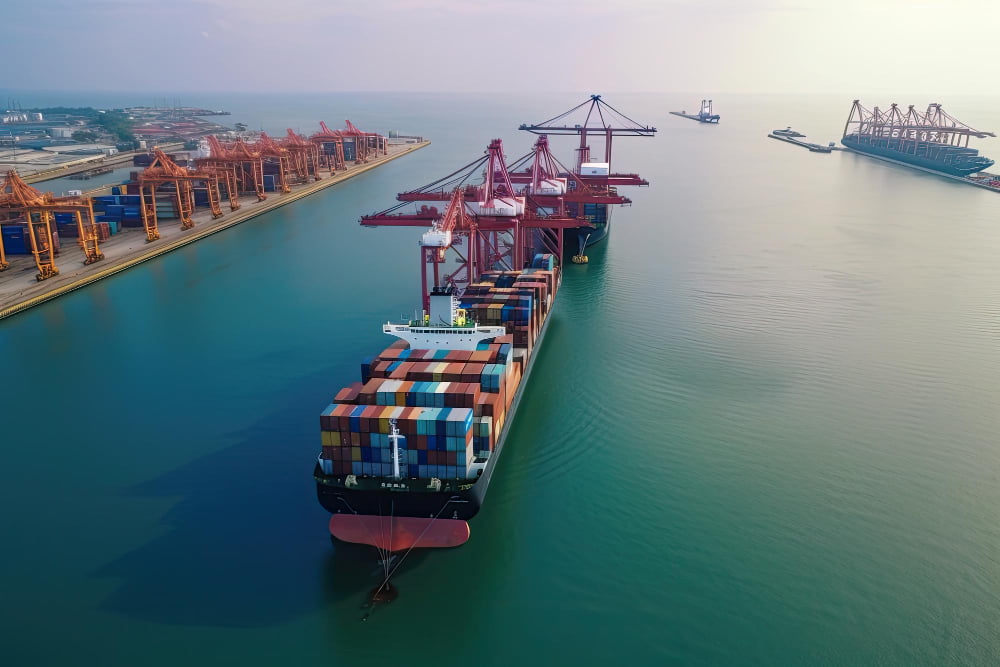Alinea Customs guide to importing controlled food products into the United Kingdom addresses a six step process. Controlled food products include certain fruit and vegetables, products of animal origin such as meat, fish and dairy and high risk food not of animal origin, such as nuts. Check the commodity code using the government’s online tool to determine if your products are controlled: https://check-how-to-import-export-goods.service.gov.uk/type-of-trade
Step 1 Purchase from the Supplier
· Decide which mode of transport is most appropriate.
· Consider how payment will be arranged (e.g. letter of credit).
· Check the UK Trade Tariff to apply the Commodity Codes and understand what import rates will apply (the buyer of the goods is liable unless agreed otherwise).
· Check if goods require import licenses or additional controls.
· Obtain quotations from carriers (depending on Incoterms agreed).
· Apply for EORI number if this is the first import.
· Make sure insurance is in place (if using insurance).
Step 2 Commercial Paperwork
Your supplier should provide you with the following documents in advance of the goods arriving in the UK. Often the original documents are held back until the supplier has received payment.
· Decide which mode of transport is most appropriate.
· Commercial invoice.
· Packing list.
· Certificate of origin / origin declaration (may be included on invoice if under the terms of the TR-UK bilateral free agreement).
· Bill of landing / Air Waybill / CMR
· Check the risk category for your products of animal origin:
· Other certification e.g. phytosanitary and conformity certificates, export health certificates for medium/high risk meat/fish/dairy, common health entry document with test for aflatoxins for the pistachios
· Insurance if the supplier is arranging this.
· NCTS issuance of a TAD if goods travel through Common Transit countries, accompanying cross-border documentation has not been administered by your seller or logistics provider.
Step 3 Goods are on their way
Once the goods have been shipped, you need to observe their ETA to ensure timely clearance on arrival.
· You must notify the competent authorities in advance of a consignment arriving in Great Britain (England, Scotland and Wales), when it includes:
– Regulated products of animal origin such as meat, fish and dairy
– Regulated plants and plant products such as fresh tomatoes
– High risk food and feed not of animal origin such pistachios
· Check the risk category for your products using the Border Target Operating Model (BTOM) risk category search function: https://www.gov.uk/government/publications/risk-categories-for-animal-and-animal-product-imports-to-great-britain
· Log into the Import of Products, Animals, Food and Feed System
(IPAFFS) system to complete the Common Health Entry Document (CHED) if required
· Provide reference to inspector in the country of export if required for the export health certificate
· Upload the relevant certificates – export health certificate for meat, fish and dairy, phytosanitary certificate and HMI conformity certificate for the tomatoes, common health entry document for high risk food and feed for the pistachios at least one working day in advance of arrival
· Provide the relevant CHED number to the customs agent
Step 4 IPAFFS entry
The customs agent can complete the IPAFFS entry if added to the manage account authorities. The agent will require:
· Importer name and EORI number.
· Commodity codes for each product (ideally this should be clearly stated on the invoice).
· Port of entrance and estimated day and time of arrival
· Bill of lading / airway bill /CMR
· Approval number of the production establishment in the European Union
· Consignor name and address
· Consignee name and address
· Place of destination and final importer if this is not the consignee
· An associated CHED reference will issued by IPAFFS
· £29 common user fee charged per commodity code to a maximum of £145 per CHED
· The port health authorities will charge an inspection fee per CHED – Ashford Port Health used for imports through Dover Border Control Post (BCP) charge £66 per review.
Step 5 Import Entry
The customs agent will complete the CDS import entry. The agent will require:
· Importer’s name, address and EORI number
· Commodity codes for each product (ideally this should be clearly stated on the invoice) and product description
· Bill of lading / airway bill /vehicle registration number and nationality /
· Net weight /gross weight of each commodity (kg)
· Value and currency
· Number of packages and type of packages
· Statement on origin with REX code if claiming tariff preference or completed importer’s knowledge form
· Method of payment (e.g. deferment account or cash account) for customs duty if applicable
· Associated CHED references issued by IPAFFS
· Port of entrance / Incoterms
Step 6 Goods Arrival and Delivery
It is advisable to book delivery in advance of arrival to avoid rent / demurrage charges which are likely to apply if goods are not collected on time.
· On arrival, the customs entry will be automatically processed.
· Customs will determine whether the goods will be cleared instantly, or if they require a document check, x-ray or physical examination.
· Other government departments may also place holds or examinations on the goods, e.g. Port Health, Forestry, or Trading Standards.
· Customs duty and taxes will be collected at this stage by customs.
Make sure that you check the condition and number of packages before you sign the driver’s delivery note. If damaged or missing, clearly state this on the receipt.
· Make sure that you check the condition and the number of packages before you sign the driver’s delivery note. If damaged or missing, clearly state this on the receipt.
· Make sure that your agent provides you with a copy of the import entry which you should keep for a minimum of four years (this can be stored digitally).
· Pay common user charges to Defra by invoice or direct debit 30 days after the arrival of the controlled food products.
Read our Guide – Importing Products of Animal Origin into the UK for more information. Please contact us on +44 (0) 207 101 4242 or email: customs@alineacustoms.com to discuss your requirements further, we are pleased to provide one-to-one guidance to support our clients with customs clearance.


